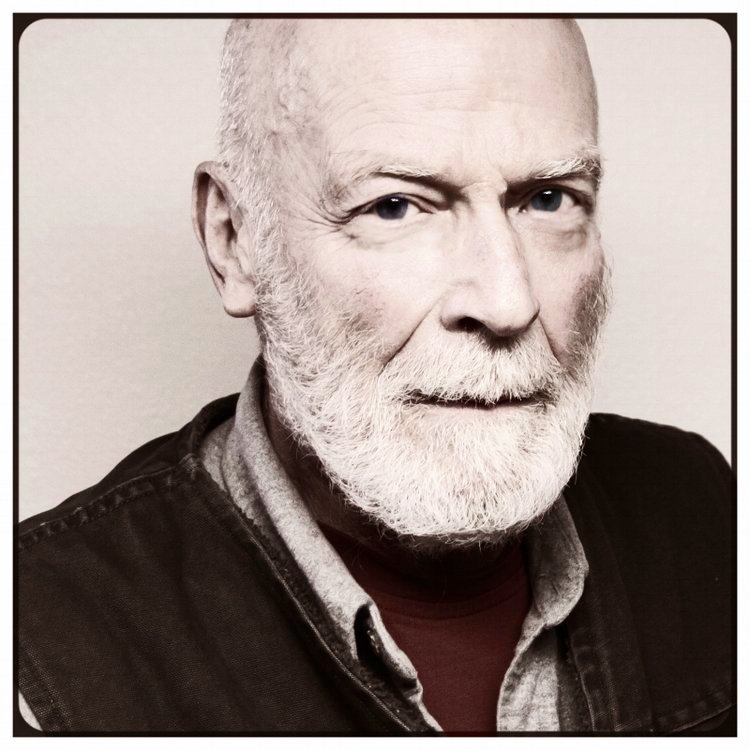
Clemens P. Starck
November 30, 1937 ~ March 21, 2024
“Yet, as previously hinted, this omni-tooled, open-and-shut carpenter, was, after all, no mere machine of an automaton. If he did not have a common soul in him, he had a subtle something that somehow anomalously did its duty. What that was, whether essence of quicksilver, or a few drops of hartshorn, there is no telling. But there it was; and there it had abided for now some sixty years or more. And this it was, this same unaccountable, cunning life-principle in him; this it was, that kept him a great part of the time soliloquizing; but only like an unreasoning wheel, which also hummingly soliloquizes; or rather, his body was a sentry-box and this soliloquizer on guard there, and talking all the time to keep himself awake.” —Herman Melville, Moby Dick

.01
DISPATCH
TULIPS
Three yellow tulip petals
embellish the driveway. Crushed rock glistens
after the rain.
First Saturday in April. Car won't start.
This is a problem
never envisioned by Wang Wei.
After two hours spent fooling with it,
pondering at length
the intricacies of the internal combustion engine,
I emerge from under the hood,
greasy
but triumphant:
the bastard finally starts!
And then the oil filter blows.
Dropping to my knees,
with concentrated effort I observe
the puddle of cold, black oil—a little flood—
seep into the gravel,
back to the earth
whence it came.
“I can think of few things more meaningful and timely than celebrating the poetry of Clem Starck, a seeker, builder, witness, and student of what Milosz call the Human Family. There’s something beyond language deep in the background of Clem’s work, and the voices gathered here share in its wonder. Like the documentary photographs of Robert Frank or the longing tones of Sonny Rollins, all we can do in the presence of such a vision is watch the world expand as we count ourselves lucky.”
—Michael McGriff
"So, why these books? Well, there’s a pure joy in reading and beholding a handmade volume that defies our mad, mass-producing culture. And it pleases me to sense the other human beings that pulse behind the pages. These books own the plain beauty of fresh-planed two-by-fours, all complemented by well-made papers, proper and elegant typefaces, delicate spot illustrations."
— Dana Jennings, New York Times Arts Beat
Jon Broderick, founder of the annual FisherPoets Gathering in Astoria, Oregon, cites Starck as the inspiration for the festival. "Clem wrote poetry about work. I had never considered doing that. I immediately thought about the fishermen I knew who wrote, and decided to get a few people together to give it a try."
—Wikipedia
“Starck is awake amid the roaring silence. ‘It could be worse,’ he has said. The Madrona Project is a recognition and celebration of a well-lived life. Starck’s Cathedrals & Parking Lots should be in every library collection in the northwest and bey0nd.”
—Rodger Moody, Editor, Silverfish Review Press
“Starck has a faultless ear and an admirable concision. He also has a quietly devastating wit and a sharp eye for the foibles of our society."
—Carolyn Kizer
"Starck is an expert workman, building his original lines nail by nail, as it were."
—Elizabeth Gunderson, Booklist
“A test of a poem’s worth is its longevity. Clemens Starck’s best poems have the intelligence simplicity, and depth that make them rewarding companions for readers’ whole lives, not just a season.”
—Kathleen Flenniken

02.
ABOUT
Clemens Starck's first book of poems, Journeyman’s Wages, received the 1996 Oregon Book Award as well as the William Stafford Memorial Poetry Award from the Pacific Northwest Booksellers Association. His next two books — Studying Russian on Company Time (1999) and China Basin (2002) — were also finalists for the Oregon Book Award. Traveling Incognito, a letterpress chapbook from Wood Works in Seattle, appeared in 2004. Rembrandt, Chainsaw, another letterpress chapbook, was published in the fall of 2011.
The Madrona Project: A Festschrift for Clemens Starck was released in November 2020. A book of collected poems Cathedrals & Parking Lots, from Empty Bowl, was released in November, 2018. His book of poems, Old Dogs, New Tricks was published by Oblio Press in the spring of 2016.
.03
listen
Listen to Clem read “A Lesson in Physics” Music by Jon Broderick and Jay Speakman.
A LESSON IN PHYSICS
One by one the old barns are collapsing.
Just last week one went down
on the Peoria road.
You couldn’t say
it was unexpected, racked as it was and leaning
a little more out of plumb
each time I passed.
I’m closing in
on 65 myself. And although
I’ve been partially rebuilt, with certain adjustments
to my anatomy,
I won’t last long.
A new roof and some cross-bracing
would have bought that old barn a few more years.
Triangulation
makes a difference. But in the end, gravity
takes over. Which is why
levity is so precious
while it lasts.

.04
biography
CLEMENS STARCK was born in Rochester, New York, in 1937. After dropping out of Princeton, he continued his education on the road, riding freight trains and working at a variety of jobs around the country. He has been a ranch hand in eastern Oregon, a newspaper reporter on Wall Street, a door-to-door salesman, and a merchant seaman, among other things.
For over twenty years he worked construction up and down the West Coast, as a union carpenter and carpenter foreman on projects of all kinds, from bridge work in San Francisco and Oregon to custom homes in British Columbia.
As a poet he has received a scholarship from the Breadloaf Writers Conference as well as a grant and year-long residence at the Helene V. Wurlitzer Foundation of New Mexico. In 1998 he was the Witter Bynner Fellow and poet-in-residence at Willamette University, where he has taught on several other occasions. In February 2004 he was visiting poet at the University of California at Santa Cruz.
His poems have appeared in numerous magazines over the years, and in anthologies ranging from Walter Lowenfels’ Where Is Vietnam? (Doubleday Anchor Books, 1966) to a compilation of work writing, A Richer Harvest: the Literature of Work in the Pacific Northwest (OSU Press, 1999). A number of his poems have been read by Garrison Keillor on National Public Radio and included in Keillor’s anthology, Good Poems for Hard Times (Viking / Penguin, 2005).
He has given readings to diverse audiences throughout the West. A collection of his work, Journeyman’s Wages, was published by Story Line Press in 1995. The book received the William Stafford Memorial Poetry Award from the Pacific Northwest Booksellers Association, and was also the recipient of the 1996 Oregon Book Award for Poetry.
Studying Russian on Company Time, an account in verse and prose of his involvement with Russia and the Russian language, appeared in 1999 from Silverfish Review Press and was a finalist for the 1999 Oregon Book Award. (The book was re-issued in a second edition in 2016.) Another full-length collection of poems, China Basin, was published in 2002 by Story Line Press, and was also an Oregon Book Award finalist. Two letterpress chapbooks of his poems have been published by Wood Works in Seattle: Traveling Incognito (2004) and Rembrandt, Chainsaw (2011).
In addition, Starck has produced two audio CDs of himself reading his poems against a musical background: Looking for Parts (2008) and Getting It Straight (2013). A new book of poems—Old Dogs, New Tricks—was published in 2016.
Retired from his job as a carpenter doing maintenance and repair work at Oregon State University in Corvallis, he lived on forty-some acres in the foothills of the Coast Range, outside Dallas, Oregon.
Oregon Encyclopedia Article here.
An interview with the Oregon State University Oral History Project here.







